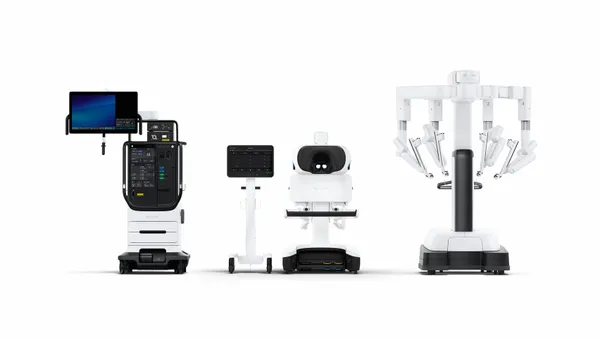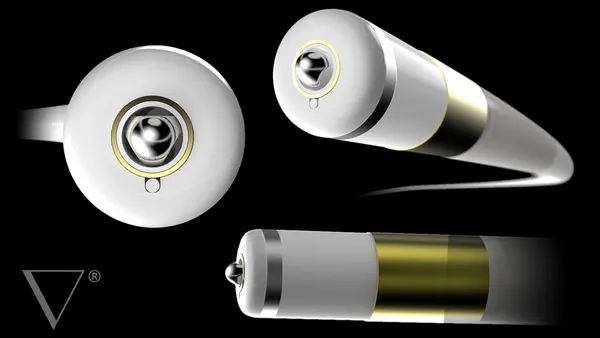UPDATE: May 8, 2019: Ottobock said it was disappointed in the FTC’s decision but said it would continue to “work in a collaborative manner with the FTC to promptly reach a mutually beneficial resolution.”
As it evaluates potential actions, the company said Freedom Innovations would continue to operate as an independent business.
Dive Brief:
- Ottobock HealthCare North America Inc. must divest recently acquired Freedom Innovations under an FTC administrative law judge's ruling announced Tuesday.
- The Ottobock/Freedom Innovations merger harmed competition in the microprocessor prosthetic knee (MPK) market, FTC asserted. The undoing of the deal could mean prices for MPK products level off, good news for the payers that cover them.
- Unraveling an already consummated deal is relatively uncommon government intervention but, in this case, the resulting MPK market concentration and the accompanying adverse consequences on competition justified the action, FTC's chief administrative law judge said.
Dive Insight:
Ottobock, the leading manufacturer and supplier of microprocessor prosthetic knees in the United States, must divest its acquisition of competitor Freedom Innovations, FTC Chief Administrative Law Judge D. Michael Chappell ruled in the decision released Tuesday. The ruling upholds the commission's administrative complaint challenging the 2017 merger as anticompetitive.
FTC found the innovation was necessary because Ottobock had essentially acquired its closest competitor in the MPK market, effectively eliminating head-to-head competition in the market.
"Challenges to consummated mergers are not that common because the agencies prefer to — and usually can —challenge mergers before they close," former FTC official Alexis Gilman, now an antitrust attorney with Crowell & Moring in Washington, told MedTech Dive.
"It's not the agencies' preferred enforcement path," he said. "They much prefer to challenge mergers before they close because it can be more difficult to unwind a merger post-closing, especially if there been significant integration." But, he said "consummated-merger challenges do happen, and we have seen several of them in the past few years."
And companies should have potential FTC challenges on their radar screens even when their acquisitions are relatively small and fall below the publicly reportable deals.
"This post-closing challenge with a divestiture demonstrates the FTC will go after transactions even if they're small and in niche markets if they feel there are anticompetitive concerns," James Burns, a healthcare antitrust attorney with Akerman in Washington, told MedTech Dive.
The ruling is also significant to payers and patients because it could steady prices for the MPK devices.
Microprocessor knees, which use microprocessors to adjust the stiffness and positioning of the joint in response to variations in walking rhythm and ground conditions, provide a stable platform for amputees, FTC said in a statement. Prosthetists and doctors typically prescribe microprocessor knees to patients with above-the-knee amputations who have a relatively high degree of mobility. The devices lessen fall risk, are less painful and better promote the health and function of the sound limb than other prosthetic products. Clinics are reimbursed at a rate of approximately $25,000 per MPK knee, according to the FTC filing.
Ottobock bought Freedom Innovation in September 2017, but the acquisition was likely not publicly reportable because it fell under the current $90 million acquisition cost reporting threshold. Post-merger, FTC challenged the acquisition, finding the deal harmed competition in the MPK market by eliminating head-to-head competition between the companies.
And it was unlikely new manufacturers or expansion by existing manufacturers would happen in time or be sufficient to overcome the merger's anticompetitive effects, FTC said. It routinely takes firms more than two years to develop a microprocessor knee, even when they are building on existing technology, according to the FTC complaint.
Chappell agreed with the FTC. "[T]he evidence in this proceeding proves that the acquisition will significantly increase concentration in the relevant MPK market, which gives rise to a presumption that the acquisition may substantially lessen competition," he said.
Ottobock will be required to divest the Freedom Innovation assets to an FTC-approved buyer within 90 days after the ALJ's order becomes final. The decision will become final 30 days after the decision is served on the parties unless an appeal is filed.













